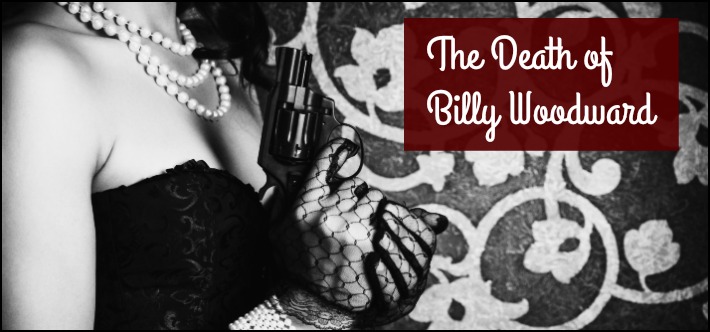When journalists deemed William Woodward, Jr. to be the “most eligible bachelor in America,” they weren’t kidding. Young, handsome, wealthy, and from a distinguished New York City family whose members hobnobbed with British royalty, “Billy” Woodward was the ultimate prize for marriageable socialites: a debonair man who would someday take over his father’s distinguished positions as director of Hanover National Bank and owner of Belair Stud, a horse-racing stable that produced money-making thoroughbreds.
It was a surprise, then, in March 1943 when 23-year-old Woodward married Ann Eden Crowell. The new Mrs. Woodward wasn’t the type of woman New York society had imagined for Billy; instead, she was the type of woman they would have referred to as “NOCD”—“not our class, dear.” Nearly five years older than her husband, Crowell had been born in Pittsburg, Kansas. Attractive and ambitious (some said to a fault), she ultimately made her way to New York City, where she found employment as a showgirl and radio actress. (In 1940, she was named the “most beautiful woman in radio.”) It was William Woodward, Sr. who introduced his son to Crowell, and though Woodward Sr.’s wife Elsie frowned on the courtship, believing that Crowell was interested in her youngest child and only son strictly for the money, the pair nevertheless wed and had two sons, William III and James, in short succession.
The couple lived a glamorous life—wining, dining, and partying with the upper crust in both New York and Europe. However, almost from the start, the Woodwards’ marriage was volatile. Both partners drank and cheated on each other, and engaged in public spats that became the fodder for gossip. In 1947, tired of the drama, Billy Woodward asked for a divorce, but his wife refused to grant one. Billy’s desire to separate from Ann—and the knowledge among New York’s upper classes that his wife’s social standing and bank account would suffer should she and her husband sever ties—caused many of their friends to question the story Ann gave when, in 1955, she shot her husband to death in their Long Island mansion.
On the fateful night of October 30, the Woodwards attended a dinner party for the Duchess of Windsor. Upon returning home, and fearing reports that prowlers had been lurking in their posh neighborhood, both retreated with guns to the safety of their separate bedrooms. Ann told police that, later in the night, she heard a noise on the roof. Stepping into the hallway, she saw a shadowy figure in front of Billy’s bedroom door. Assuming the figure was a prowler, she fired. Then, approaching the body, she realized that the man she had just felled was her husband.
Immediately, the question arose: Did Ann really, as she claimed, shoot her husband after mistaking him for a prowler? Or was her intent more sinister? Tongues wagged that Billy was still threatening divorce and that Ann might have killed him to keep that from happening. Surprisingly, the woman who most disapproved of Ann—her mother-in-law, Elsie—ended up being her defender, though for purely self-serving reasons. Not wanting to subject her family to additional scandal, Elsie, despite her private belief that Ann had intended to kill Billy, publicly insisted that Ann was innocent. Gossips believed that to cement this position, Elsie paid a man named Paul Wirths to tell police that he had broken into the Woodward home that night (though whether or not Elsie made such a bribe has never been proven).
Ultimately, a grand jury found that Ann Woodward had committed no crime. However, the damage that a divorce would have done to her social life was nothing compared to the shunning she received from New York society, many of whose members believed that she had deliberately murdered her husband. Twenty years later, when Ann heard that author Truman Capote was publishing part of his autobiographical novel, “Answered Prayers,” and that one of the chapters featured a murderous socialite based on Ann, she swallowed a cyanide pill, dying on October 9, 1975. Though friends said that Ann had been depressed and that Capote’s story wasn’t the direct cause of her suicide, Ann’s mother-in-law weighed in as follows: “That’s that. She shot my son, and Truman just murdered her.”
The sad legacy of the Woodward family didn’t end with Billy and Ann. As adults, both Woodward sons committed suicide by jumping out of windows—a bitter testament to the fact that money can’t buy happiness, and that the sins of previous generations are often visited upon their children.

Leave a Reply